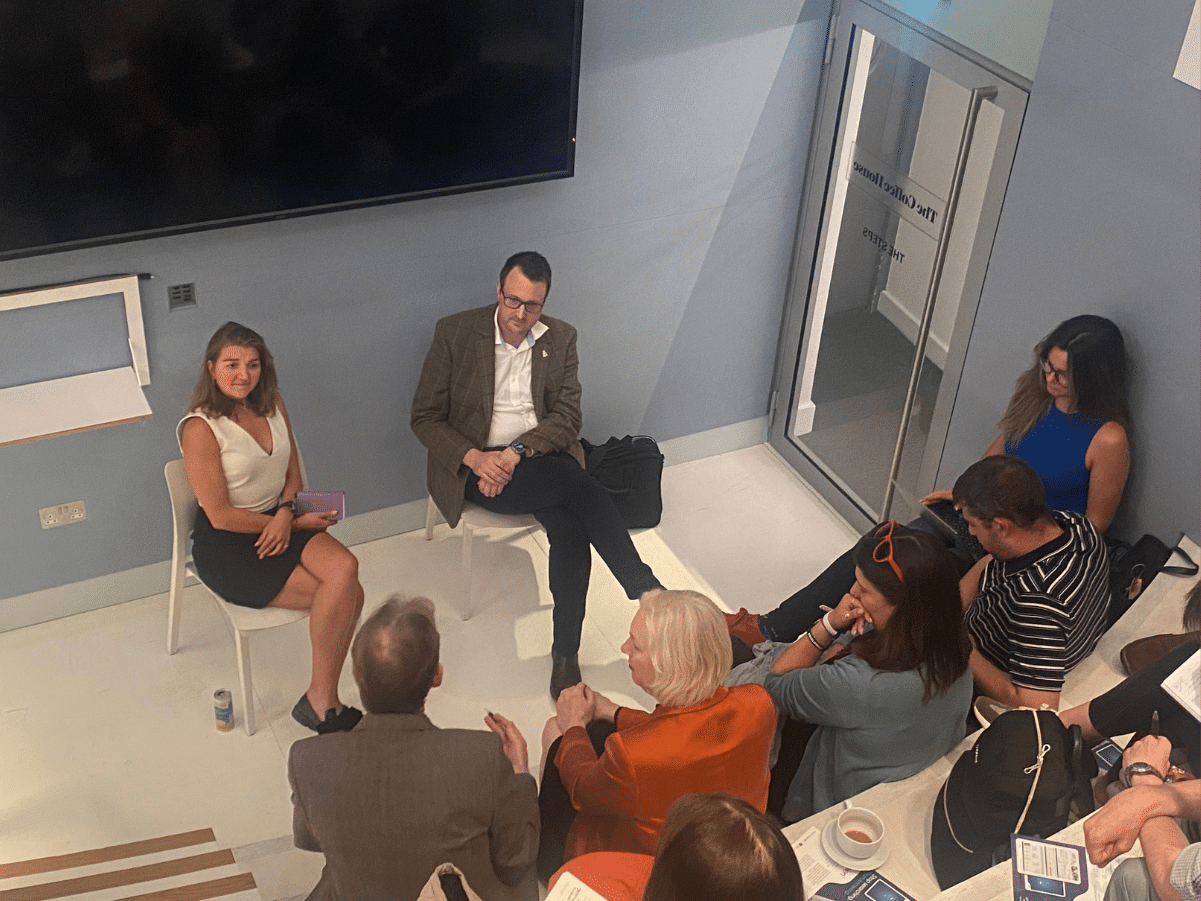On September 12, we hosted our bi-monthly industry event for nonprofit professionals, with a particular focus on the evolution of Corporate Social Responsibility (CSR) and Environmental, Social, and Governance (ESG). We explored how these changes have shaped the priorities of CSR teams and created partnership opportunities for nonprofits.
Our guest speaker for the event was Edward Sharman, Head of Development at the RAF Museum, who brought over 15 years of experience in charities and CSR roles, spanning corporate partnerships in nonprofits and CSR positions in investment banks. If you couldn’t attend or missed it, continue reading for our key takeaways.
The evolution of CSR and ESG
As a professional in the nonprofit sector, you’re likely to be familiar with the term ‘Corporate Social Responsibility (CSR)’ which often describes how companies incorporate social and environmental concerns into their business. You’ve probably also come across the term ‘Environmental, Social, and Governance (ESG)’ in your work and its framework which is used to measure ESG performance.
While these terms may initially sound like buzzwords, they carry significant weight. Just fifteen years ago, ESG wasn’t a focal point in corporate fundraising or CSR, as Edward pointed out. During the banking crisis, CSR budgets in corporations were the first to be cut.
Now the situation has reversed. Previously considered a ‘nice-to-have’, ESG practices have evolved into a critical business driver, directly impacting the bottom line. Edward explained this shift is largely attributed to the growing importance of sustainability in the eyes of both ESG standards and consumers.
How corporates and nonprofits can benefit each other
ESG has become a growing requirement for corporate CSR teams. Edward emphasised this point by explaining that when the UK government awards contracts to corporations, 10% of the decision-making process is influenced by the environmental and social responsibility demonstrated by these companies.
In addition, bidders must evaluate the extent to which they can deliver the stated ESG objectives in each procurement.
One solution lies in collaborative efforts with nonprofits to drive positive change and establish a lasting impact. Edward underscored that this responsibility also falls upon nonprofits, who must show how they can help corporations achieve their broader ESG objectives.
For instance, at the RAF Museum, where Edward serves as the Head of Development, they partner with defence sectors to offer STEM education to children. The impact of these partnerships lies in educating the next generation of engineers.
How should nonprofits approach corporations?
During Edward’s tenure at Deutsche Bank, he handled up to 20 calls a day from charities. He learned from this experience that nonprofits must distinguish themselves when approaching corporations for partnerships and show how they can offer more value than anyone else.
This means their values are as aligned as possible, generating genuine impact for both sides and prioritising long-term results. For nonprofits, it’s more advantageous to have a few well-aligned partnerships than scattered small contributions here and there.
But what does Edward recommend for nonprofits when they approach corporations? First and foremost, they must conduct comprehensive research to analyse and qualify potential partners, examine their CSR objectives, and assess if your organisation can meet those.
It is also fundamental to assess whether your association with them would pose any reputational risk to your organisation.
Given the scrutiny on all non-profit organisations, the RAF Museum has created an ethics advisory group for the most complex of acceptance decisions. They follow a three-stage research process, beginning with an initial check and then proceeding to comprehensive due diligence once they have a sense of the partnership’s potential value for them.
Edward also suggested two avenues for approaching companies: through the CSR route or via the marketing and PR team. He emphasised that the latter is often a better choice, given their better resources and a more thorough understanding of the reputational impact.
He also recommended involving business development directors since they can effectively convey how the partnership will benefit the corporation’s bottom line.
What impact has Xapien had?
Using Xapien in their research and due diligence has allowed Edward’s team to allocate more time to threat assessments and strategic planning, increasing the number of companies they are able to evaluate weekly from 2 to 5, allowing for more opportunities to be found and more relationships to be cultivated. You can learn more about how Xapien is helping nonprofits build a stronger pipeline while protecting their reputation here. Or if you’re interested in how we could help your organisation with corporate fundraising, then get in touch with our team here.



